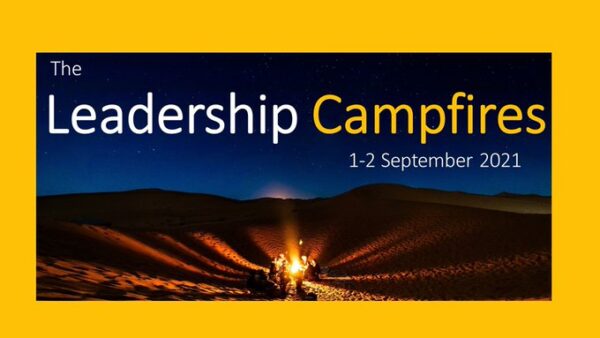On 1st September 2021, Ingenium in conjunction with Know Can Will Do and Collective Leadership Scotland hosted a virtual ‘leadership campfire’ exploring Experiences of collective leadership and development in non-Western cultures as part of The Leadership Campfires Festival.

This campfire aimed to:
- Share experiences of collective leadership and development in non-Western cultures;
- Explore collective leadership models and experiences that embrace diverse perspectives;
- Create the conditions, from which participants can learn from each other’s stories;
- Seek to embody and model collective leadership in the delivery of the session.
Collective Contributions
It was recognized in designing the session that the collective wisdom of the group would far exceed the knowledge of the facilitation team. This was particularly apparent in exploring non-Western cultural experiences given the broad scope of the topic and the opportunity for contributions from several countries and cultures.
The approach adopted to the campfire was to seek both:
- Facilitate experience and knowledge sharing by group members;
- Develop critical action learning questions relevant to both current and future states.
The session was kicked off with some key conceptual knowledge was shared by the facilitators. These were based upon personal journeys of understanding embracing action learning, leadership-as-practice, and collective leadership principles and realities. Experiences of collective leadership and development in Jamaica, Samoa, and Tanzania shared, acted as a trigger for others to share their experience, and sought to build a collective understanding prior to an interview format discussion of how leadership practice is changing in Saudi Arabia.
The following key questions and insights emerged:
- The importance of recognizing the framing of leadership and how this works across cultures – the importance of recognizing bias and assumptions, such as that the Western model or corporate model of leadership will be relevant for all.
- Has the West lost its way in framing leadership? – having previously contributed to the Cooperative movement which contributes significantly to the world food supply, the union movement has declined, was Kafka right?
- Has the time come for a more organic perspective on leadership particularly given the hierarchical positioning of it hasn’t worked?
- Isn’t it impossible to construct a generally applicable view of leadership – in reality, every situation is unique – this came from discussing one participant who is from the UK, based in Japan, and working on leadership globally so there is a complex web of factors to consider e.g. organizational, corporate, national, cultural.
Observations on the Changing Nature of Leadership in Saudi Arabia
During an interview with Mahdi Alsalem, Professional Engineer, we discussed his observations on the Changing Nature of Leadership in Saudi Arabia. Mahdi Alsalem explained that leadership in KSA was changing in the following ways:
- The agenda for future leadership is overtly declared, determined from the top, and published.
- This agenda (Vision 2030) has proven a driver for major social change agendas such as increasing the representation of women and younger generations in leadership roles, education, and training.
- There is still a respect for Western knowledge in KSA and a hunger to learn from the West – including from the big brand name institutions.
- A younger generation of leaders is emerging in KSA.
Continue the conversation:
If you want to join the conversation and continue the learning online use the hashtag #CLDNWC on Twitter. Or check out more articles on leadership from Ingenium thought leaders here.